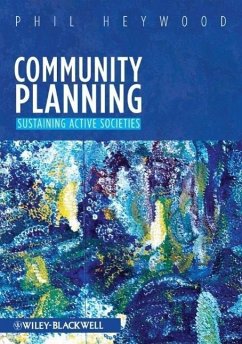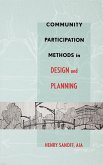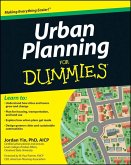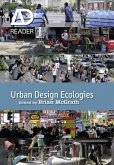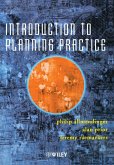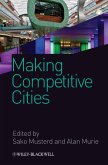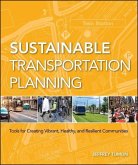This key planning textbook on designing healthy and sustainable communities informs planners about community life and the processes of planning and equips them with the essential knowledge and skills they need to organise change and improve the quality of urban living.
The author examines the impacts of social and economic change on community life and organization and explores ways in which these changes can be planned and managed. Community planning is presented as a means to balance and integrate beneficial change with the maintenance of valued cultural traditions and life styles. This involves bringing together fields of study and practice including urban and regional planning, design, communication, housing, community organization, employment, transport, and governance. Links drawn between personal values, human activities, physical spaces and societal governance assist this process of synthesis.
Establishing a common vocabulary to discuss planning - for urban and regional planners, including health planners; and open space planners - enables both students and practitioners to work with each other and with those for whom they provide services to create stronger, healthier and more sustainable communities.
The aims and roles of community planning are explored and the key planning operations are explained, including the phases and applications of community planning method; the planning and location of community facilities; the roles of design in shaping responsive community spaces; and the capacity of different types of community governance to improve the relations between citizens and societies.
The book is organized into two main parts: after the first three chapters have established the interests and scope of community planning, the next six each moves from an account of issues and theoretical concerns, through a review of case studies, to summaries of leading practice. This positive approach is intended to encourage readers to develop their own capacities for effective participation and action. The concluding chapter draws together the contributions of preceding ones to demonstrate the integrity of the community planning process
Supplementary website: www.wiley.com/go/heywood
Hinweis: Dieser Artikel kann nur an eine deutsche Lieferadresse ausgeliefert werden.
The author examines the impacts of social and economic change on community life and organization and explores ways in which these changes can be planned and managed. Community planning is presented as a means to balance and integrate beneficial change with the maintenance of valued cultural traditions and life styles. This involves bringing together fields of study and practice including urban and regional planning, design, communication, housing, community organization, employment, transport, and governance. Links drawn between personal values, human activities, physical spaces and societal governance assist this process of synthesis.
Establishing a common vocabulary to discuss planning - for urban and regional planners, including health planners; and open space planners - enables both students and practitioners to work with each other and with those for whom they provide services to create stronger, healthier and more sustainable communities.
The aims and roles of community planning are explored and the key planning operations are explained, including the phases and applications of community planning method; the planning and location of community facilities; the roles of design in shaping responsive community spaces; and the capacity of different types of community governance to improve the relations between citizens and societies.
The book is organized into two main parts: after the first three chapters have established the interests and scope of community planning, the next six each moves from an account of issues and theoretical concerns, through a review of case studies, to summaries of leading practice. This positive approach is intended to encourage readers to develop their own capacities for effective participation and action. The concluding chapter draws together the contributions of preceding ones to demonstrate the integrity of the community planning process
Supplementary website: www.wiley.com/go/heywood
Hinweis: Dieser Artikel kann nur an eine deutsche Lieferadresse ausgeliefert werden.

